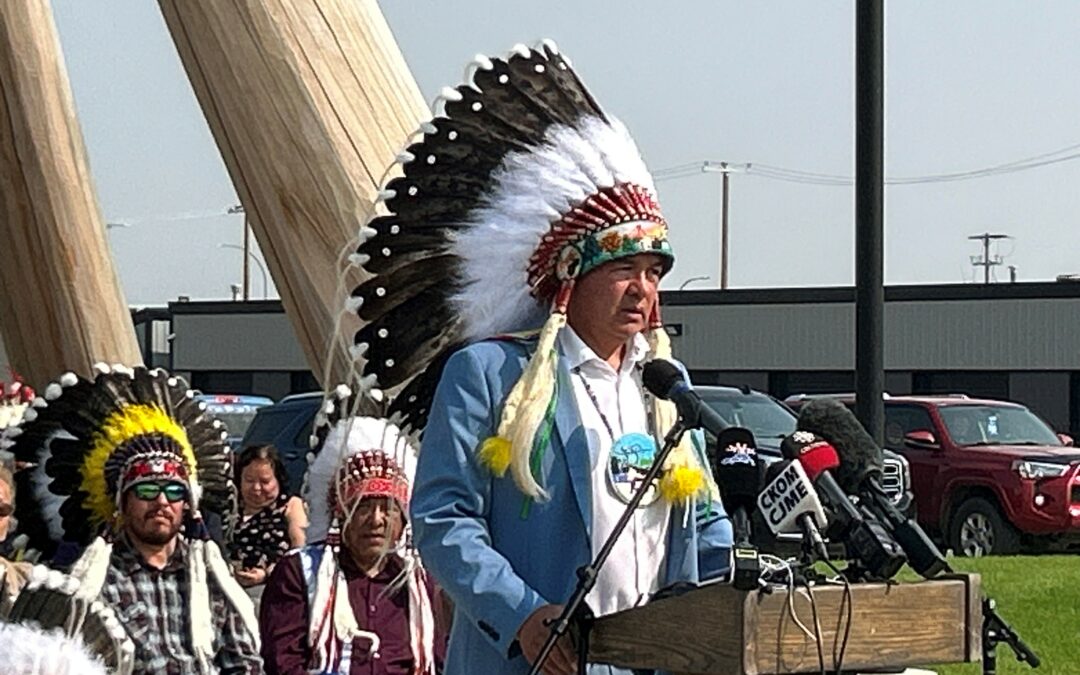An expert observer is weighing in on the Federation of Sovereign Indigenous Nations (FSIN) legal challenge to the Natural Resources Transfer Agreement.
Ken Coates, professor emeritus with the Johnson Shoyama Graduate School of Public Policy at the University of Saskatchewan told MBC Radio News, the legal challenge, announced this past Tuesday in Saskatoon, has been a long time in the making.
“When Perry Bellegarde was the grand chief of the Federation of Sovereign Indigenous Nations he often spoke about the fact that this Natural Resources Transfer Act had to be dealt with as a matter of treaty right and as matter of sort of unresolved business,” he said.
When it comes to the possible legal outcome, Coates said recent court decisions on similar cases have gone the way of First Nations. He explained courts in Canada have lately been in agreement with First Nations in their interpretation of treaties along with government obligations.
“We can see this on the child and family welfare settlement, that actually ended up being a $40 billion settlement, which is a staggering number and if you take that and look at the one that just came in Ontario, where, what’s called the Robinson Huron First Nations settled a case for $10 billion, relating to annuity payments,” he said.
Looking at the big picture, Coates said while the question about land rights, specifically the depth of the plow interpretation of treaties will be part of the discussion, he added there is also a larger question. Specifically, the fact that during treaty negotiations First Nations were told they were an act of partnership that also promised as the country prospered they would as well.
“The treaties imply that there will be this level of prosperity sharing in the future and that’s really important,” he said.
Coates said First Nations in Saskatchewan along with Manitoba and Alberta have been trying for a long time to negotiate resource sharing agreements with their respective provincial governments. Looking at the possibility that the FSIN’s legal challenge could bring both levels of government to the negotiating table, Coates guessed this could happen if the court process is clearly going the way of First Nations.
“You actually have to see some success at early stages for the First Nations for the governments of Canada and the prairie provinces to change their mind and take a somewhat different approach,” he said.
Resource sharing agreements with Indigenous people are in place in other parts of Canada, specifically the territories, Quebec along with Newfoundland and Labrador, making the prairie provinces holdouts to some degree.
Overall Coates said what First Nations are asking for is not unrealistic as their requests not only include getting some of the financial benefits, but also being part of the process.
“The First Nations along with the Métis have always been quite open to talking about properly done resource development, certainly in recent years and I think it’s going to be very fascinating and very important for the province of Saskatchewan and all of western Canada to watch this very carefully,” he said.
(Top Photo: FSIN Chief Bobby Cameron talking about the federation’s legal challenge in Saskatoon Tuesday. Photo by Michael Joel-Hansen.)
